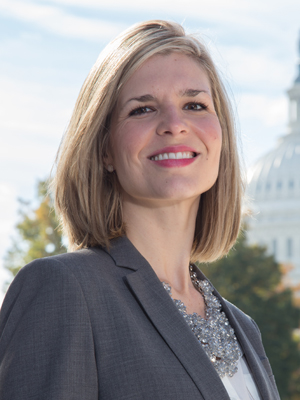
 By Nan Futrell, BJC Staff Counsel
By Nan Futrell, BJC Staff Counsel
Overshadowed by the more high-profile religious liberty headlines of the past year, the work of the federal faith-based initiative has proceeded quietly under President Barack Obama’s leadership. Before taking office, the president expressed his commitment to constitutionally sound partnerships between government and religious entities to provide secular social services. He recognized the need for certain reforms to the White House Office of Faith-based Initiatives created by President George W. Bush, and his administration has made slow but steady progress toward implementing constitutional safeguards that protect religious liberty in the context of public partnerships with religious groups. Early in his first term, President Obama renamed it the Office of Faith-based and Neighborhood Partnerships (OFBNP), a title that reflects the importance of engaging both non-religious and faith-based nonprofits. The OFBNP works with the 13 faith-based offices in various federal agencies to serve needy citizens at home and abroad.
In November 2010, President Obama signed an executive order clarifying the appropriate contours of partnerships between the federal government and faith-based social service providers. Among other improvements, the executive order provides that religious organizations may not engage in “explicitly religious” activities (including worship, religious instruction or proselytization) or include overt religious content in federally funded programs. While the executive order carefully protects organizations’ right to maintain their religious character and mission and the right to compete for funding on the same basis as secular groups, it requires that explicitly religious activities be kept separate in time or location from services funded with direct federal aid. The executive order also sets forth standards to promote transparency and accountability regarding partnerships with faith-based organizations, and it includes important protections for program beneficiaries who may object to a provider’s religious affiliation. In a disappointing, but unsurprising, omission, the executive order does not overturn a Bush-era policy allowing religious organizations to discriminate on the basis of religion when hiring for federally funded positions. Finally, it established an Interagency Working Group charged with reviewing existing agency policies and producing a report outlining necessary amendments and additions to ensure that agency regulations and guidance documents comply with the principles set forth in the order.
The Working Group submitted its report in April 2012 — more than a year later than expected — proposing regulatory changes and providing useful guidance that will increase uniformity among agencies reflecting the executive order reforms. The Baptist Joint Committee, working with our partners in the Coalition Against Religious Discrimination (CARD), reviewed the Working Group report and identified some ways of improving its recommendations. Our comments, which we sent in late November, urged federal agencies to take full advantage of earlier recommendations made by President Obama’s first Advisory Council on Faith-Based and Neighborhood Partnerships, a diverse body of 25 individuals with expertise on the work of faith-based and other community organizations. Among other things, CARD asked that the agencies strengthen language guaranteeing beneficiaries’ right to alternative service providers, including mandatory written notice of those rights; adopt clearer definitions of what kinds of “explicitly religious activities” are prohibited in federally funded programs; and develop specific enforcement plans for addressing noncompliance issues. We will continue to encourage the new administration to implement these changes.
In the meantime, the president has appointed a new Advisory Council, tasked with focusing on issues related to human trafficking and modern-day slavery in America. The 2012 Council is in the process of drafting a report identifying ways the government can better partner with faith-based and other nongovernmental groups to address this crisis and serve its victims. This and other developing initiatives were discussed at a recent Brookings Institute event we attended examining the next four years of the OFBNP. Panelists both within and outside of the administration (including former BJC General Counsel Melissa Rogers, who chaired the White House Advisory Council on Faith-Based and Neighborhood Partnerships) discussed past successes as well as future goals and challenges facing the federal government as it continues to partner with faith-based entities to achieve common aims in constitutionally sound ways. The BJC recognizes the hard work and diligence required to ensure that the Obama faith-based initiative will live up to its promise of fulfilling secular needs without diminishing religious freedom. As the administration builds upon the positive changes it has already undertaken, we will closely follow OFBNP policy developments and offer guidance where we see opportunities to bolster religious liberty protections in the context of public partnerships with faith-based entities.
From the January 2013 Report from the Capital. Click here for the next article.




